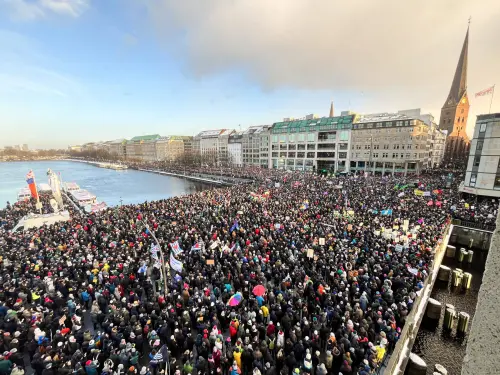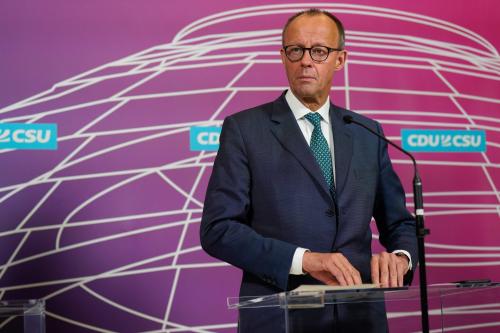

10:00 am EST - 11:30 am EST
Past Event
On March 9, 2021, Foreign Policy at Brookings hosted German Foreign Minister Heiko Maas for a keynote address to mark the launch of the Fritz Stern Chair. Fritz Stern, an acclaimed historian and scholar of trans-Atlantic relations until his death in 2016, provided a new understanding of modern Germany and the threats facing democracy. Constanze Stelzenmüller — the inaugural holder of the chair — will build on this legacy to analyze trans-Atlantic relations at a time of global instability and uncertainty.
Foreign Minister Maas reminded listeners that Fritz Stern had famously called Germany’s reunification in 1990 its “second chance” — but that it would depend on the country embracing a “policy of reliability and reason.” This, Maas added, “is what we should keep in mind when we talk about Germany’s global responsibility today.” Maas noted that in all liberal democracies, “‘alternative facts’ are eroding trust in our institutions.” The only way democracy can survive in the digital age, according to Maas, is for democracies to summon “the power of reason.” He underscored President Biden’s remark that “there is no longer a bright line between foreign and domestic policy” and the belief that by investing at home first, and then focusing on democratic reforms abroad, liberal democracies can “revitalize our bonds” and “protect the rules-based international order.”
On reliability, Maas quoted Stern, stating that Germany must “not just use its power, its wealth, its pursuit of peace and reason, not just to invoke Europe rhetorically, but to help turn it into a reality,” and highlighted the European Union’s rescue package and joint procurement of COVID-19 vaccines as recent examples of German support for European unity. On Germany’s global responsibility, Maas said that Germany is ready to work with a reengaged America “as a voice of reason in our joint fight for democracy, as a reliable partner in Europe and the world, and as a responsible ally and friend, working with you to make this world a better place.”
Following Foreign Minister Maas’s remarks, Vice President and Director of Foreign Policy Suzanne Maloney moderated a panel with German Ambassador to the United States Emily Haber, Robert Bosch Senior Fellow Fiona Hill, and Senior Fellow and Fritz Stern Chair Constanze Stelzenmüller.
The panel began by discussing Stern’s legacy. Without Stern’s efforts to engage the West during Germany’s reunification process, Stelzenmüeller said, Germany’s current relationship with the world today would be “unthinkable.” Hill highlighted that in the wake of rapid demographic and technological change and in the face of looming global crises like climate change, Stern’s exploration of the fragility of democracy speaks to not only the present moment, but also the future.
On current U.S.-German and trans-Atlantic relations, Ambassador Haber described U.S. reengagement as a “return to a shared agreement that we are not lone fighters” against threats to democracy, including from a rising China, authoritarian regimes, and emerging technologies. Stelzenmüller warned that while the new U.S. administration has perhaps brought a reprieve for trans-Atlantic relations, authoritarian challengers are testing not only our democratic systems, but also our collective humanity and solidarity, citing recent crises of vaccine nationalism, the continued success of right-wing populism, and a renewal of the politics of cultural despair — a phenomenon that Stern identified in his eponymous book “Politics of Cultural Despair.”
The panelists moved onto a lively discussion on Nord Stream 2. Hill and Stelzenmüller expressed concerns about the pipeline, with Hill highlighting that it threatens Ukrainian sovereignty and cements Ukraine’s dependence on Russia. Ambassador Haber argued that the current debate on the pipeline is reductionist, and because Germany has committed to becoming fossil-fuel-free by 2050, concerns about German energy dependency on Russia are overblown.
In closing, the discussants reflected on the meaning of International Women’s Day for trans-Atlantic relations. With women leading at the highest levels of government in Europe, including German Chancellor Angela Merkel, governments have become increasingly representative and inclusive, but more needs to be done.
Panelist


Constanze Stelzenmüller
March 4, 2024

Constanze Stelzenmüller
January 31, 2024

Constanze Stelzenmüller
December 29, 2023